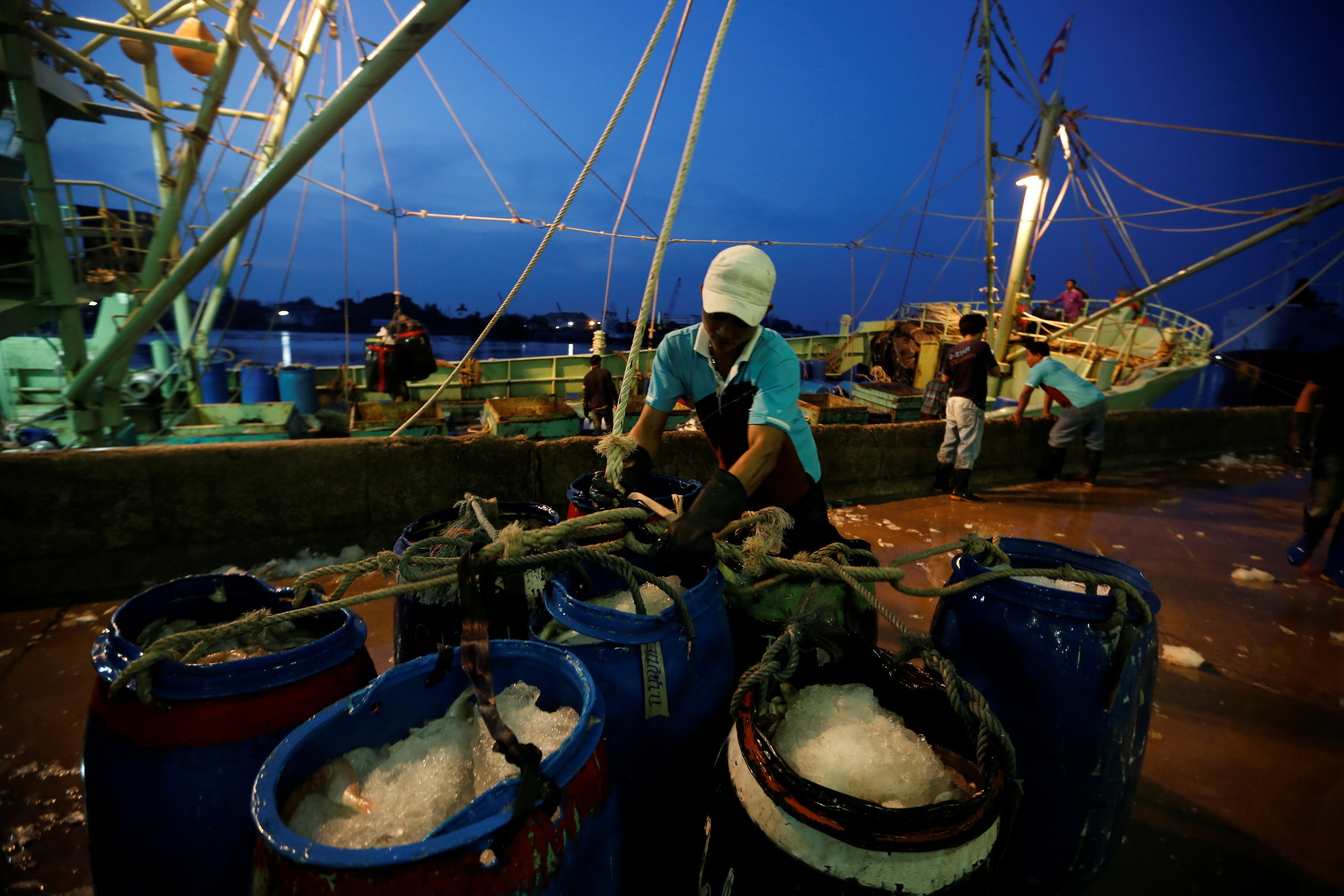Image: Fishermen download the catch at Samut Sakhon port in Thailand November 22, 2016. Picture taken November 22, 2016.
By Cod Satrusayang
SAMUT SAKHON, Thailand (Reuters) – Climate change threatens to undermine Thailand’s efforts to combat illegal fishing and avoid a potential European Union ban on exports by the multi-billion dollar seafood industry, environmental groups say.
They warn that climate change is slowing the recovery of fish stocks in traditional fishing grounds, prompting boats to venture outside Thai waters in search of fish.
“Overfishing plays a major role in the decimation of the fish stock in the Gulf of Thailand and the Andaman Sea, but climate change is just as big a threat,” said Suchana Chavanich, a marine biologist at Chulalongkorn University.
“Warmer oceans mean that fish don’t grow to their full length. Coral bleaching caused by climate change means fish nurseries and their food sources are also under threat,” Suchana said.
Thailand’s fish stocks peaked in 2006 at 856,212 tonnes of fish caught in the Gulf of Thailand, according to One Shared Ocean, a group that monitors marine issues.
Four years later it was down to 617,568 tonnes, the last year for which the group has data.
The EU issued a “yellow card” to Thailand in April 2015, warning the country should clean up its poorly regulated fishing industry or face a ban on seafood exports.
Thailand is the world’s third-largest seafood exporter, shipping $7 billion worth of fish and seafood products in 2013, according to fisheries department data.
Exports to the EU were 481 million euros ($511 million) last year, EU figures show.
Since the EU “yellow card”, the Thai government said it has registered most of its fishing fleet and banned ships fitted with push nets and bottom trawling equipment from going to sea.
As a result, more than 3,500 fishing boats have been unable to leave port for at least a year, according to the Thai Overseas Fisheries Association.
Earlier this month, the last of 48 boats seized during operations against illegal fishing were sunk off the Thai coast in an effort to create artificial coral reefs for tourism.
The EU said it is working with Thailand on implementing an action plan and no deadline has been set for a decision. “The dialogue with the Thai authorities is ongoing,” Enrico Brivio, spokesperson for Environment, Maritime and Fisheries, said in an emailed statement.
While the government has sought to avoid an EU ban, it has not done enough to address the effects of climate change on marine aquaculture, said Anchalee Pipattanawattanakul, an ocean researcher at Greenpeace Southeast Asia.
“Any recovery made by fish stocks from the government’s new illegal fishing initiatives are threatened in the long term by warming oceans,” Anchalee said.
Officials at the Department of Fisheries said climate change was an issue for the cabinet and parliament to address.
Meanwhile, the fishing industry is skeptical about the government’s assurances that the measures it has introduced to combat illegal fishing will lead to a recovery in fish stocks.
More than 300,000 people are employed in Thailand’s seafood sector, many of them migrant workers from neighboring countries.
“A lot of the fishermen have come to me for advice about changing industries and what other things they can do,” said Abhisit Techanitisawad, President of the Thai Overseas Fisheries Association.
“They just don’t see their long term future within this industry.”
(Editing by Darren Schuettler)
Copyright 2015 Thomson Reuters. Click for Restrictions.


